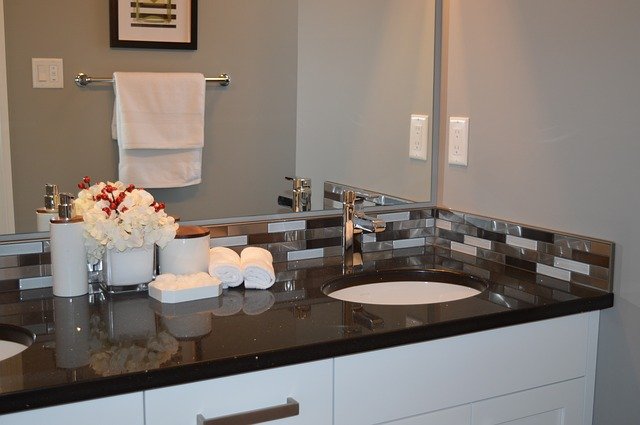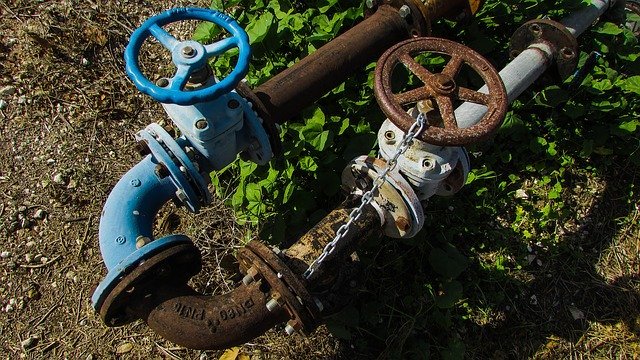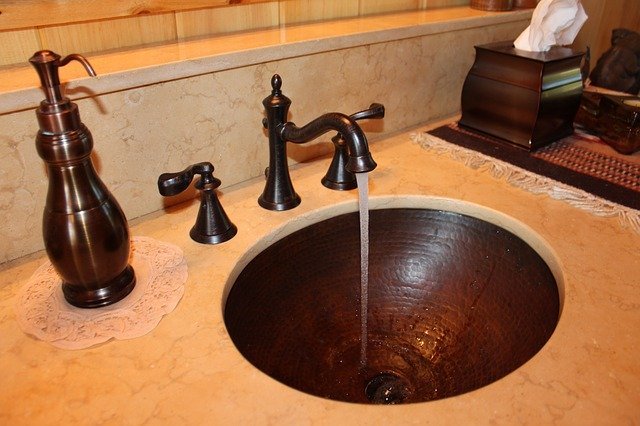
Everyone has questions about plumbing at one time or another. This article problem helps with both so that people may be prepared for all kinds of plumbing emergencies arise.
If your pipes freeze, turn on the water from the faucet nearest them to let water out when they start to thaw. This will relive some of the pressure, and could prevent cracks from appearing.
To keep your pipes from freezing in the winter, maintain a constant temperature in your home above freezing, and be certain to adequately insulate those pipes that are out in the weather. Your plumbing can freeze if the air around it is below freezing. It takes time to thaw so you can have water again. However, frozen pipes often burst, as well – making a huge plumbing bill.
Pump your septic tank about once every five years, to make sure it is working well. This will prevent sediment from piling up in your tank, which could cause it to overflow into your home and yard, or even cause the entire septic system to fail. It may be a bit expensive to pump a septic tank, but it will be very expensive to clean up an emergency sewage problem.
If you discover a pipe has frozen, turn on a nearby faucet so that thawed ice has a place to go. This relieves the pressure contained in the pipe as it also prevents it from bursting, which may prevent bigger damage for your home.
You do not give the plumber all the money until he is finished with his work. Although you might be required to pay a down payment before the job is initiated, never pay the bill in full until you are certain that the job is completed to your satisfaction. Knowing that the plumber performed all services, as promised, can be good for your peace of mind and your wallet.
Do not pay your plumber until the problem is fixed. You may have to pay a portion of the cost before the plumber works on the job, but you never want to pay the entire amount until you are certain the job was completed to your satisfaction. You need to know the plumber did his job before you pay him.
Get to know the tools and how they are used for the most success in plumbing. Use manuals and online sites to get informed before doing a plumbing project yourself. Be sure to plan before starting a repair, because it can be expensive to fix mistakes.
Don’t use harsh chemicals such as toilet tablets that claim to be cleaners in your toilet. These products may well remove odors, but they can seriously damage the rubber pieces in the toilet, causing poor functionality or even complete breakdown of the fixture.
It is important to clean your garbage disposal often to keep it functioning for many years. By regularly incorporating a routine using a combination of dish soap, lemon rinds, and even cherry pits, you can keep your disposal running smoothly and smelling as fresh as the day it was installed.
If your toilet gets clogged, the water level in the toilet is low, and the plunger is not working, you may be able to resolve the problem by pouring a bucket of warm water into the toilet from waist level or higher. Repeat this procedure if necessary as the water goes back to a lower level.
Run cold water in your sink when you turn on the garbage disposal. Cold water keeps blades sharp and allows for smoother disposal. Using hot water will cause grease to liquefy and accumulate in the drain, which will cause clogs in your pipes.
If your home runs on well water and you notice any orange or pink stains in your fixtures or tub, you probably have iron in your water supply. You will need a water softener in order to take care of this problem, which is something you can get on your own at a local retailer, or hire someone to go to your home and fix it for you.
To lessen the chances of toilet problems, do not use as a place to put trash. Under no circumstances flush cotton balls or swabs, paper towels, diapers, sanitary pads or other materials that will not dissolve. These items can cause major clogs. Additionally, use the minimum amount of toilet paper required to clean up after you are done.
Overflow Holes
Applying prevention measures is key to preventing plumbing issues. A common serious repair is removing clogs in the drain. Clogs in drains are often caused by buildups of hair. Use a drain cover to keep hair and other elements from going down your pipes. It is easy to get the hair out of a screen; however, removing it from a pipe is a different story.

Ensure that your overflow holes aren’t clogged up. Clear the overflow holes periodically when doing periodic checks for problems and things that need to be repaired.
A costly repair, in regards to plumbing, are frozen pipes. This, however, is typically preventable. First, ensure that all outside pipes have sufficient insulation. Secondly, when the temperature begins to drop, you want to drain and disconnect the hoses, then make sure you turn the outside faucet off. Taking proper precautions can save you lots of money on plumbing bills.
If there is unwanted water draining into the dishwasher, check the connection on your kitchen sink. The hose connecting the kitchen sink to your dishwasher has to go up and then down so that there is no mixing between fixtures.
If you have grout deposits inside your pipes, it is almost impossible for an inexperienced homeowner to fix. You might be able to break it up a little bit and then get it a little further down the line. Having plastic pipes rather metal pipes will work a lot better. Yet keep in mind that it is probably going to take professional work to eradicate this problem for you.
Lint Trap
The clean out plug can sometimes be difficult to remove, and if you are having problems, there are two approaches to fixing this problem Try to use a hammer and chisel to loosen it. Your only other choice is chiseling directly through the actual plug itself.
Be sure to clean your dryer’s lint trap is clean.This will ensure that your dryer to work better and prevents fires. Be sure you inspect your lint trap for tears or holes that could mean lint is going into your pipes, because this can cause bigger problems as it may mean that lint is escaping into your pipes.
If sewage backs up into a toilet in your home, there is likely a clog in the line that connects your sewer line to your main line. Get help from a professional. A plumber will run a snake in the line to clear it.
Frozen pipes can be a disaster and cause a lot of damage and cost you money. The first thing you should do is make sure that all of the outside pipes are well insulated. When the temperature dips, disconnect and drain your hoses and shut off outside faucets. This will help to save some serious money on pipe repairs over time.
Check with the Department of Consumer Affairs when shopping for a good plumbing contractor. They will tell you if their licenses are all up to date or if they have received any negative feedback. You don’t want to hire anyone who is not in good standing and has an expired, or non-existent, license.
Do not expect to clean grout from your plumbing.You could try to break up to have it fall further which will help the flow get better. This is more successful in plastic pipes as opposed to metal ones.
Don’t pour chemicals down your drain to unclog it, even if the product is labeled as a drain opener. Despite the effectiveness of these products in unclogging pipes, the ingredients within them are not friendly to skin contact. If you must use them, wear long sleeves and gloves.
Don’t run the water when you use your garbage disposal. In some cases, it could cause garbage to stick to your disposal, and contribute to future problems.
If you see water dripping into your walls, it is crucial that you shut off your water supply and call a plumber immediately. This usually indicates a serious plumbing problem. Many initially small problems can lead to hazardous mold, mildew or flooding.
Make sure you do educate yourself ahead of time before situations arise. Also, doing a little routine maintenance can help to prevent problems from coming up in the first place. Use this advice for any future plumbing needs.
Take breaks if you are doing repairs outside in the sun. Wrapped up in complicated work, you forget the danger of sun exposure over a long period of time.

